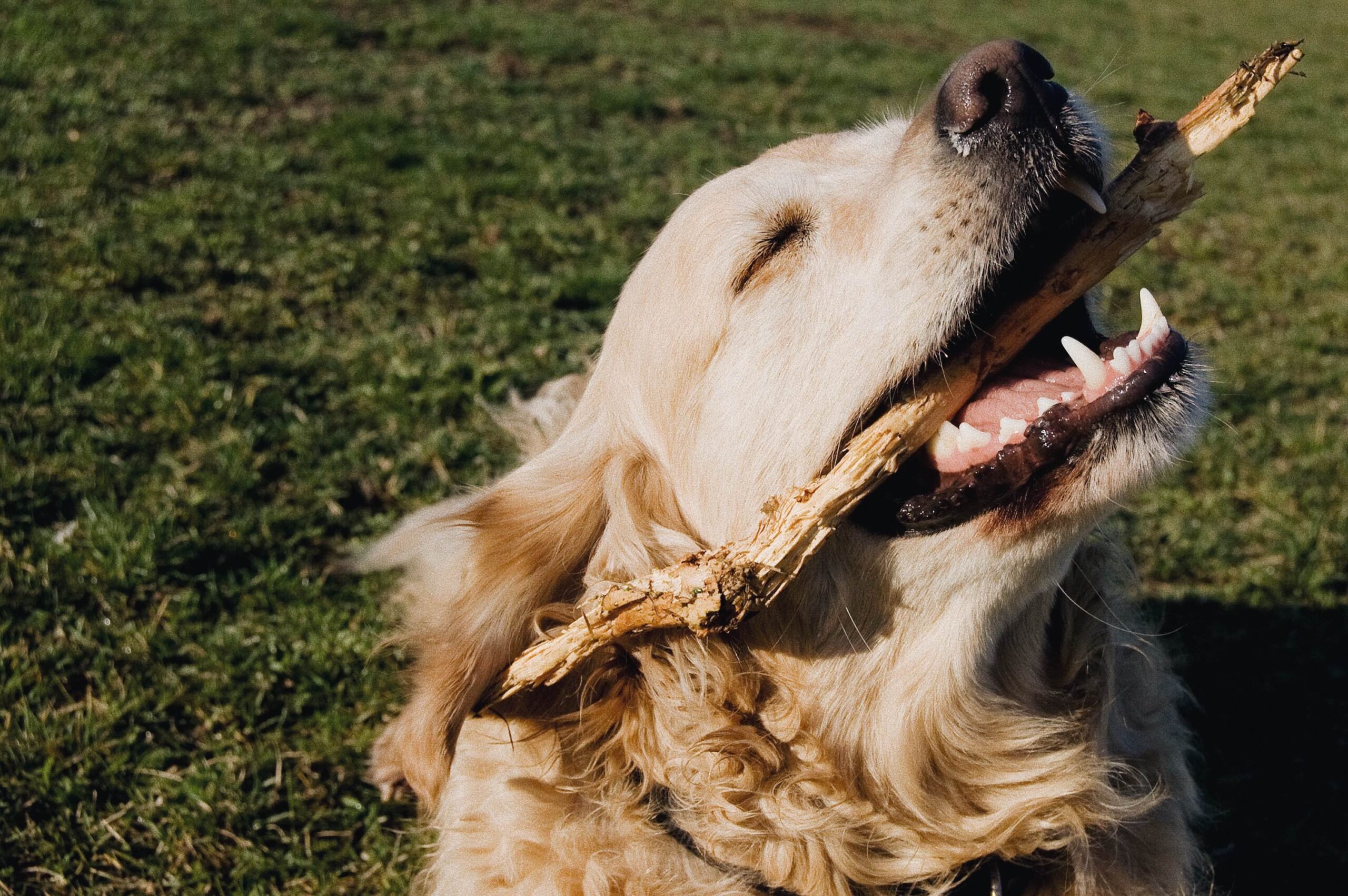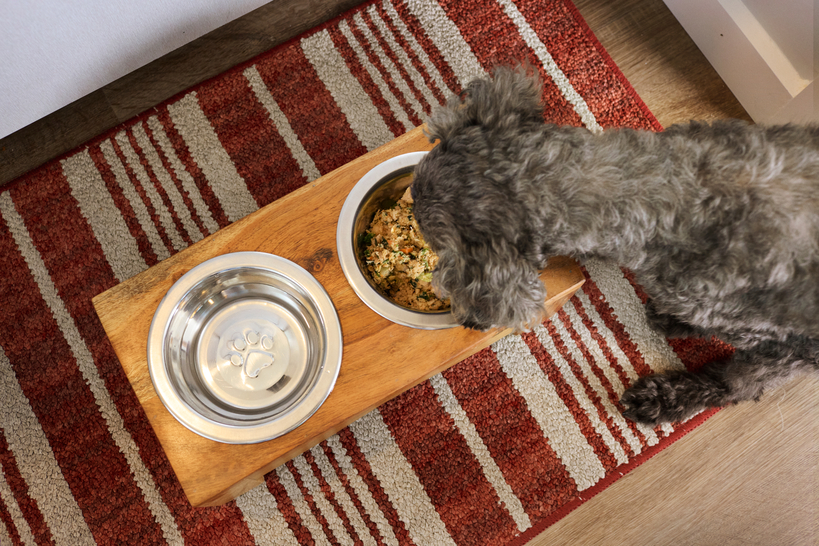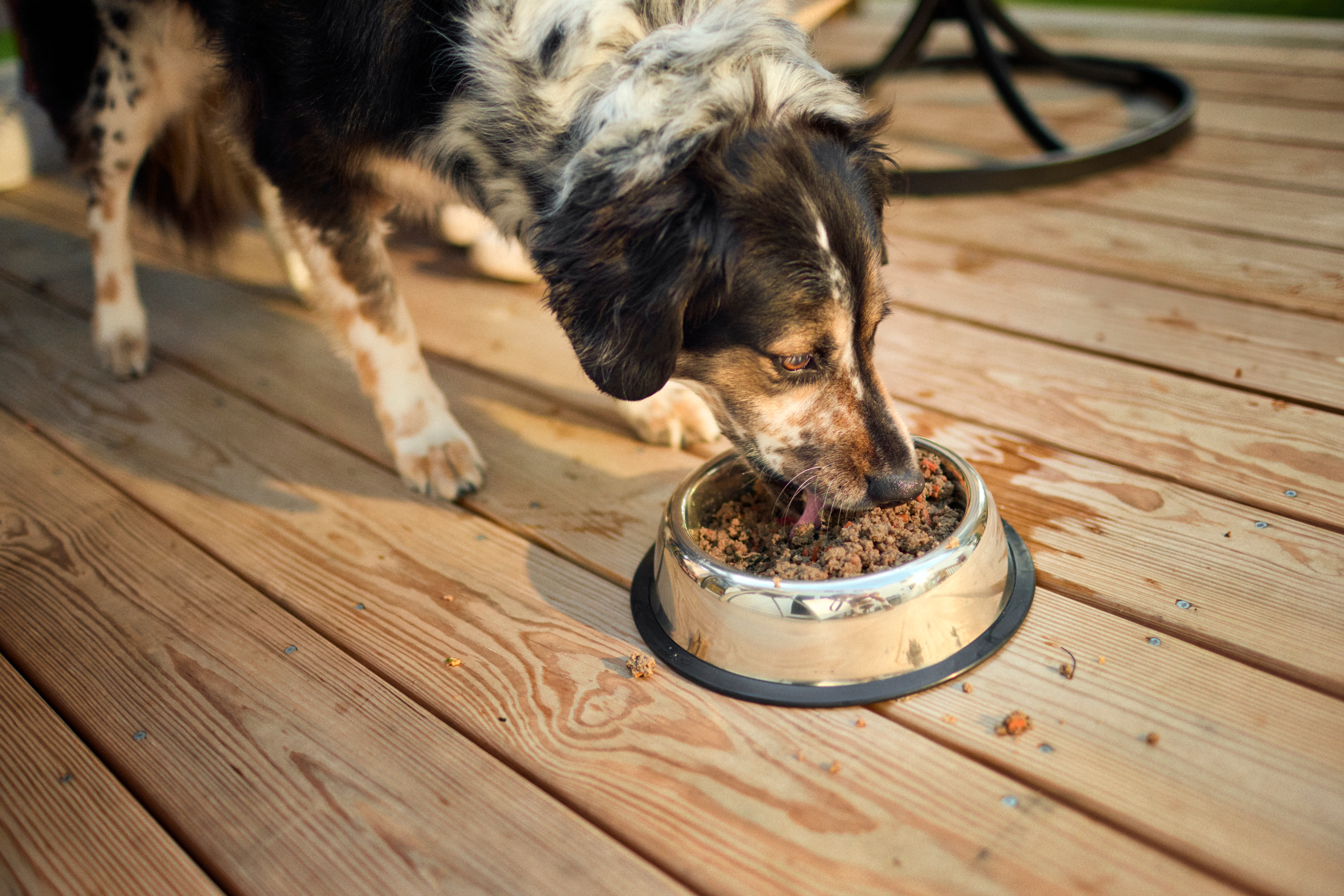
Strong, healthy teeth are one of a dog’s trademark assets (after all, there’s a whole kind of tooth—canines—named after dogs). But good dental health isn’t just about a beautiful smile; it’s critically important to a dog’s overall well-being.
According to VCA Animal Hospitals, more than 80% of pets older than three years of age have active dental disease. “Dental disease is probably one of the most common things I diagnose and comment on in routine wellness exams,” says Jonathan Block, DVM, owner of West Delray Veterinary clinic in Delray Beach, Florida. “Almost every single dog has some dental tartar.” And where there’s tartar, there can be gingivitis, and periodontal disease, which can in turn lead to a range of other health issues.
When it comes to caring for dogs’ teeth, though, there’s a persistent assumption that can steer people, and dogs, wrong: the assumption that feeding a dog any kind of kibble will help keep their teeth clean. This oft-repeated notion seems to rest on the principle that as the dog crunches down, the pieces of kibble will scrape the teeth clean.
It’s true that some specially formulated prescription dental diets and treats may help keep the teeth clean. Such products have been proven effective through scientific studies and are certified by the Veterinary Oral Health Council.
But what about regular kibble dog food? Is kibble really necessary to clean a dog’s teeth? The short answer is, no, of course not.
“It’s folklore,” Dr. Block says. “There is no evidence-based research that supports the claim that eating typical kibble helps prevent dental disease. Wild carnivores chew on bones, tendons, ligaments and cartilage that help strip the teeth of debris. Intuitively, it seems to make sense that the abrasive nature of kibble may provide a similar dental benefit, but this is unproven.”
Regular kibble dog food, although crunchy, sticks to a dog’s teeth like any other food does.
Let’s break it down.
After a dog eats any food, tiny bits of the food are left behind on the teeth. These food particles mix with bacteria in the mouth, collecting along the gum line. If the teeth are not brushed soon after eating, the food residue forms a soft film called plaque. Plaque can be brushed away, but only if you get to it before it hardens into tartar, which is calcified and very hard. When tartar (also known as calculus) develops beneath the gum line it causes gingivitis (bleeding and inflammation of the gums). If allowed to progress, gingivitis can cause periodontitis. This serious dental disease causes infection and tooth loss. Periodontal disease is also associated with cardiopulmonary disease and other disorders.
Kibble is an ultra-processed food. Any benefits that kibble promises “don’t justify the other health consequences that dogs might experience eating poor quality food that doesn’t have good bioavailability,” says Dr. Block.
Feeding For Teeth = Feeding for Health
If kibble isn’t a miracle food for keeping teeth clean, what type of food is best for dogs’ teeth? It turns out, food that’s good for a dog’s overall health is also good for a dog’s dental health.
“In my opinion, a pet’s overall health should be the most important factor behind dietary recommendations,” Dr. Block says. “I think improving their overall systemic health with a whole-food diet probably improves their microflora and promotes an overall healthier immune system, which will allow them to ward off things like dental infections and be able to tolerate them better.”
When choosing a dog food, Dr. Block recommends basing your decision on what’s best for the health of your dog. Look for a complete-and-balanced diet containing high-quality ingredients.
Another benefit to choosing a fresh, healthy diet: better breath. Highly processed kibble can contribute to the bad kind of dog breath. Fresh, whole foods are also less inclined to stick to teeth the way hard, crunchy kibble does.
Brush Up on Dental Health
The biggest way pet owners can help prevent dental disease, gingivitis and periodontitis is daily teeth brushing at home.
While dogs are subject to the same process that drives dental disease that humans are,
most pet owners don’t brush their dog’s teeth daily as is recommended by veterinarians. In fact, many dogs have never had their teeth brushed at all.
“When brushing, you’re preventing the plaque from accumulating,” Dr. Block says. “If you brush with enough frequency, you’ll break up the initial plaque before it turns into tartar.” Dr. Block recommends using a veterinary-specific enzymatic toothpaste made for dogs. Dog toothpastes come in pup-pleasing flavors like poultry and beef.
While brushing a dog’s teeth sounds complicated, it all comes down to habit. Try brushing your dog’s teeth at the same time every day, either right after they eat dinner or maybe just before bed when you brush your own teeth. You can also ask your veterinarian about using other preventive dental products like treats, chews and water additives.
If you’ve got a puppy at home, it’s a great opportunity to develop a life-long habit. If you have an older dog, you can get them used to the brushing process by using your fingers wrapped with a piece of gauze and some dog toothpaste.
Some dogs may also benefit from chewing on raw, meaty bones (never cooked bones). First, be very aware of what kind of “chewer” your dog is. Select the right size and type of bone for your dog, and always monitor the chewing. “Chewing on bones and those types of things can help with preventing tartar and plaque tartar accumulation but you also run the risk of pets fracturing teeth if they go at bones aggressively so you really have to evaluate what is right for your individual dog,” says Dr. Block, citing one of his dogs who was a champion gnawer. “My dog who unfortunately is no longer with us, a Lab-Golden mix, I could give her a marrow bone and she’d go to town on it for half a day. At the end her teeth were solid. It was unbelievable how she was able to keep her teeth clean by grinding and chewing on these bones. But many dogs won’t do that. Then they have to come in and get their teeth cleaned.”
It’s a good idea to bring your dog to the vet for a dental assessment annually at least. Even with at-home care, some dogs might benefit from a professional dental cleaning if your vet has concerns about periodontal disease or gingivitis. Professional dentistry procedures performed by your veterinarian can clean below the gum line—something you can’t do at home.
In short, dental health and overall health go hand in hand. Feed your dog the healthiest diet you can and implement good dental care practices at home.




